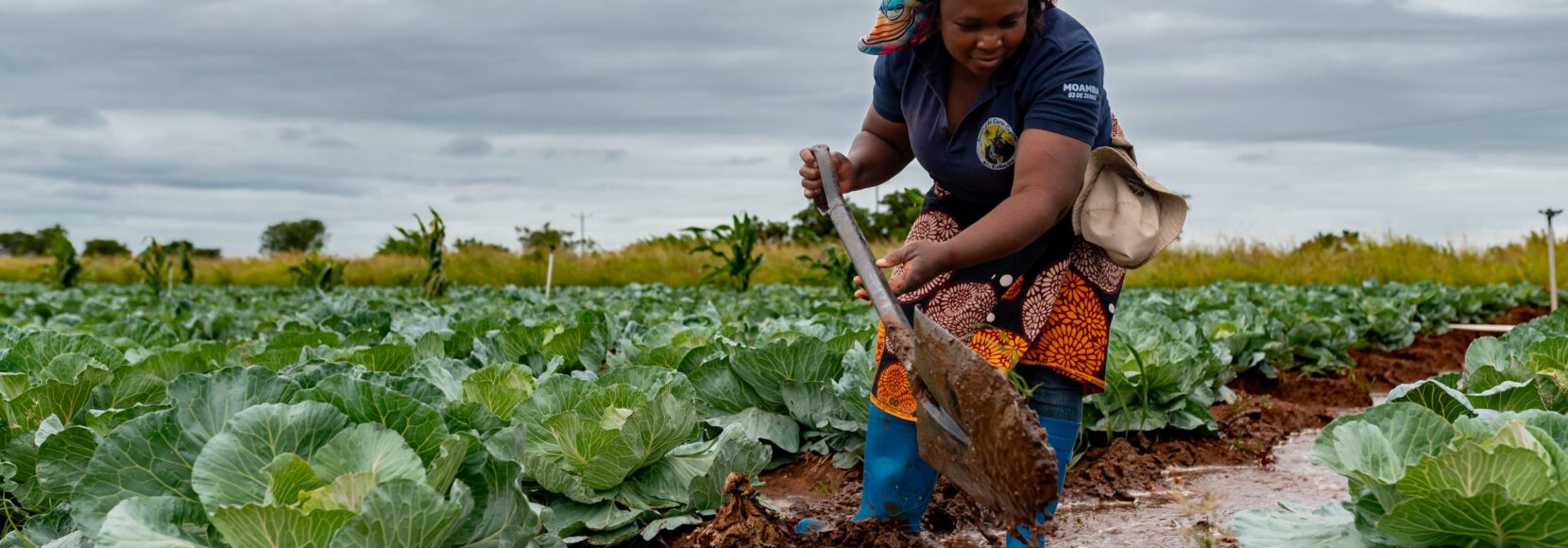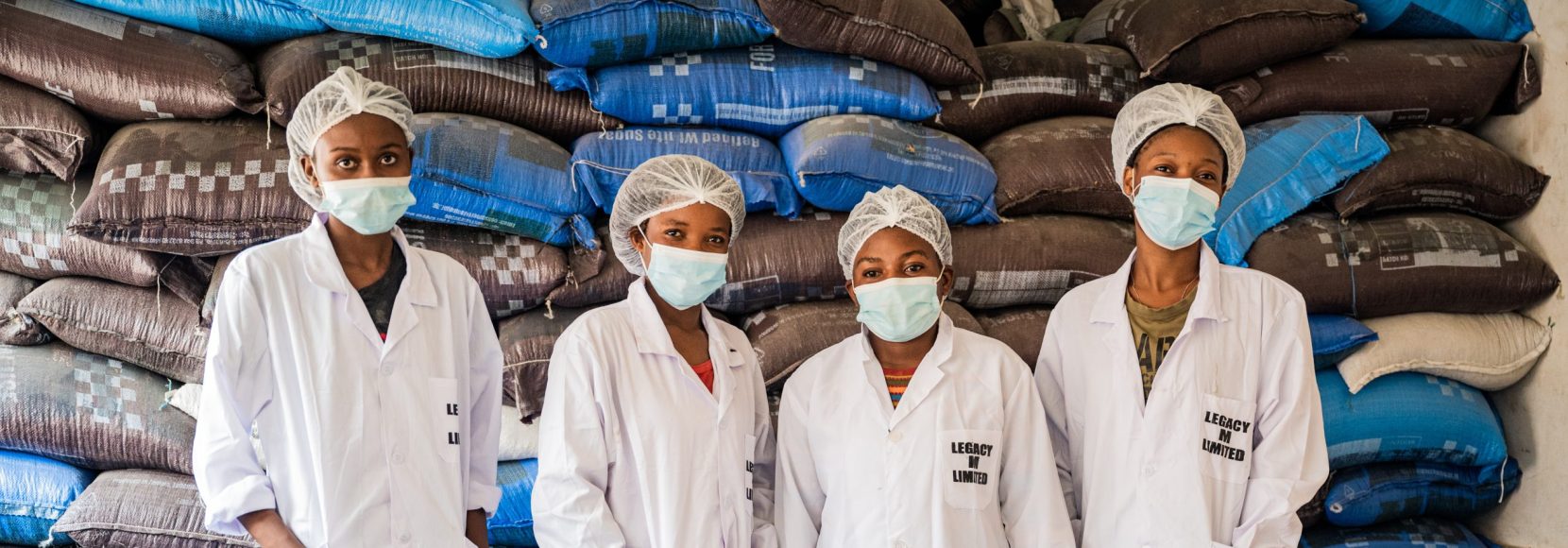
How African Food Businesses Succeeded Amid a Food Crisis
By demonstrating their resilience and capabilities, African food businesses are now poised to play a critical role in securing regional food security for the future.
Nearly three years ago on February 4, 2020, the first case of COVID-19 on the African continent was confirmed in Egypt. By mid-August of the same year, more than 1 million COVID-19 cases in Africa had been reported. This caused a strain on daily life for millions of people, as well as many businesses essential to ensuring a steady, nutritious supply of food for the population.
With the pandemic threatening the operations and survival of these food businesses, the Visa Foundation stepped in in 2021 to provide resiliency grants to eight African food processors. These grants were complemented by technical assistance from the Coalition for Farmer-Allied Intermediaries (CFAI), a group of pioneering organizations, including TechnoServe, that work with over 600 African food companies to strengthen the continent’s food systems. TechnoServe and Partners in Food Solutions provided technical assistance to these firms through the Alliance for Inclusive and Nutritious Food Processing program, which is funded by USAID’s Feed the Future initiative. As a result of this partnership, these African food businesses increased their sales by 70%, supporting stable markets for 1,500 farmers and creating new employment opportunities for nearly 100 workers. Below, we share the impressive turnaround story for each business.
Saving Jobs and Farmer Incomes in Tanzania
The AA Nafaka Store Supply Limited provides consumers with nutritious food like fortified flours, polished rice, and sunflower oil. It also provides a reliable market for smallholder farmers selling their crops. So when the COVID-19 pandemic made it difficult for AA Nafaka to sell its products, the company had to lay off employees and delay payments to farmers. Read how this dynamic, woman-owned company turned things around, rehiring some employees and boosting purchases from smallholder farmers.
Boosting Staple Food Production in Ethiopia
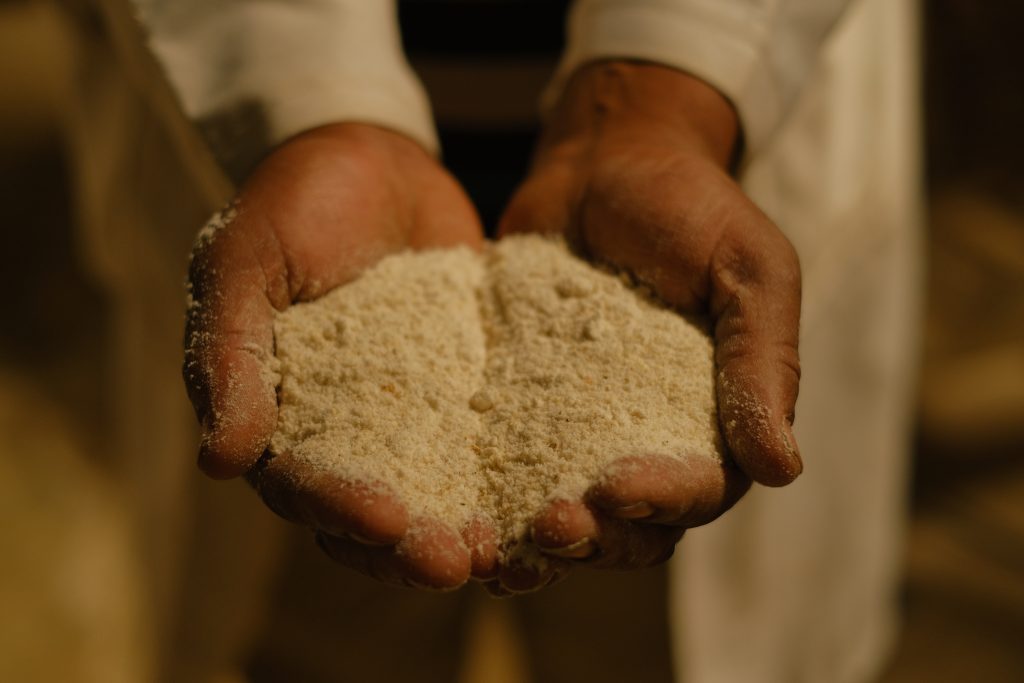
Beri Food Complex, a maize mill in Ethiopia, suffered a sharp drop in revenue when COVID-19 disrupted the distribution and sale of its products. At the same time, the firm’s operating expenses increased; the price of raw maize surged due to supply chain disruptions, and the company had to purchase additional PPE for its 33 employees. But after working with TechnoServe, Beri’s working capital increased by 17%, it was able to expand production by 20%, and sales increased by 40% from the first quarter of 2020.
Supporting Nutrition for Kenya’s Most Vulnerable Populations

The Delish & Nutri company produces Kenya’s first and only peanut powder–a low-cost, protein-rich product that can be added to meals and is sold to vulnerable communities where there are few affordable options for protein. When the COVID-19 pandemic disrupted both the marketing and sourcing strategies of the company, it turned to TechnoServe and the Visa’s Foundation’s resiliency grant . As a result, Delish & Nutri was able to source 19 tons of raw peanuts from smallholder farmers, pay suppliers and workers on time, and implement a successful social media marketing strategy, ensuring the company could continue operating and supporting better nutrition for Kenya’s vulnerable people..
A New Business Survives–and Thrives–in Zambia
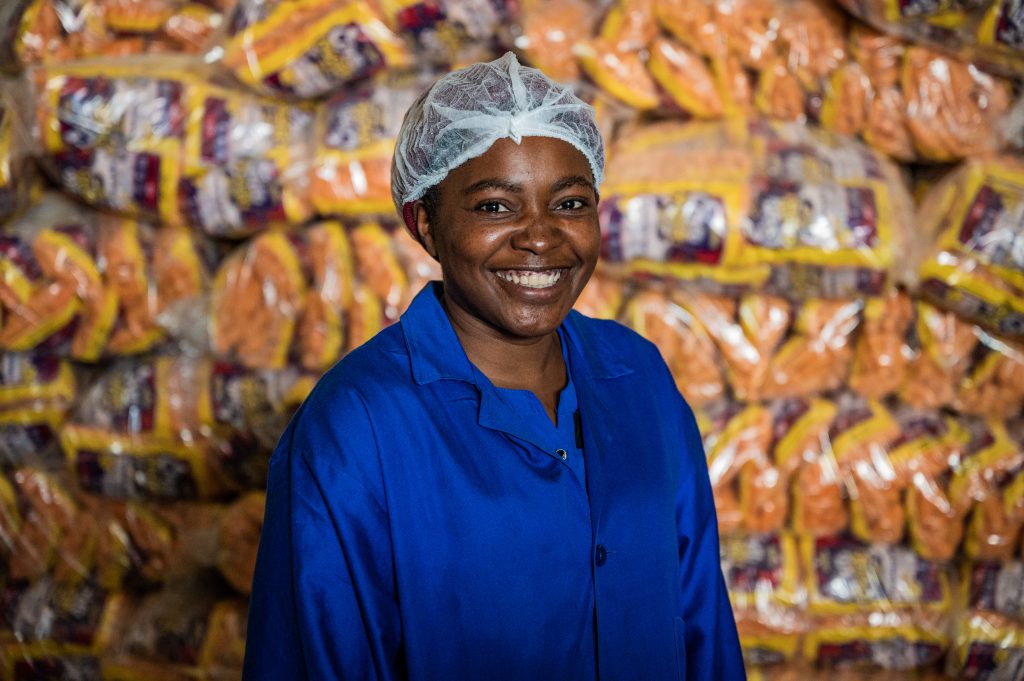
Launching a business is never easy, but doing so amid a historic pandemic is even more difficult. That was the challenge that the owner of Legacy Manufacturers Limited faced as the company hoped to launch its soy- and maize-based products in the Zambian market. Financial and technical support from Visa Foundation and CFAI helped the company access the materials it needed, and the fledgling company has been able to grow despite the difficult conditions.
Milk Nourishes Success for Farmers in Ethiopia
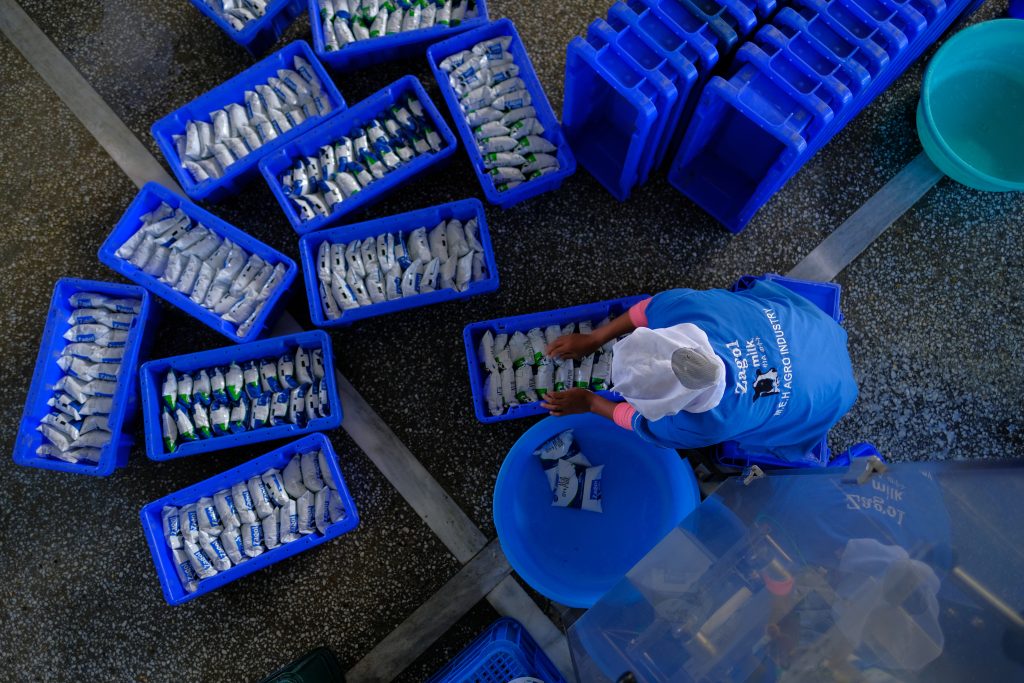
Melkam Endale Dairy Farm and Milk Processing built its business by investing in relationships with smallholder dairy farmers. A dramatic decline in demand for milk and dairy products at the outset of the pandemic put those relationships–and the business–at risk. But working with TechnoServe, MEDFMP was able to increase the volume of raw milk it purchased by 92% and grow the number of farmers in its supply chain from 300 to 343 (of whom 120 are women). The firm was also able to improve its rate of on-time payment to farmers from 60% to 80%, helping to rebuild trust with suppliers and attract new ones.
Protecting Nutrition and Business in Zambia
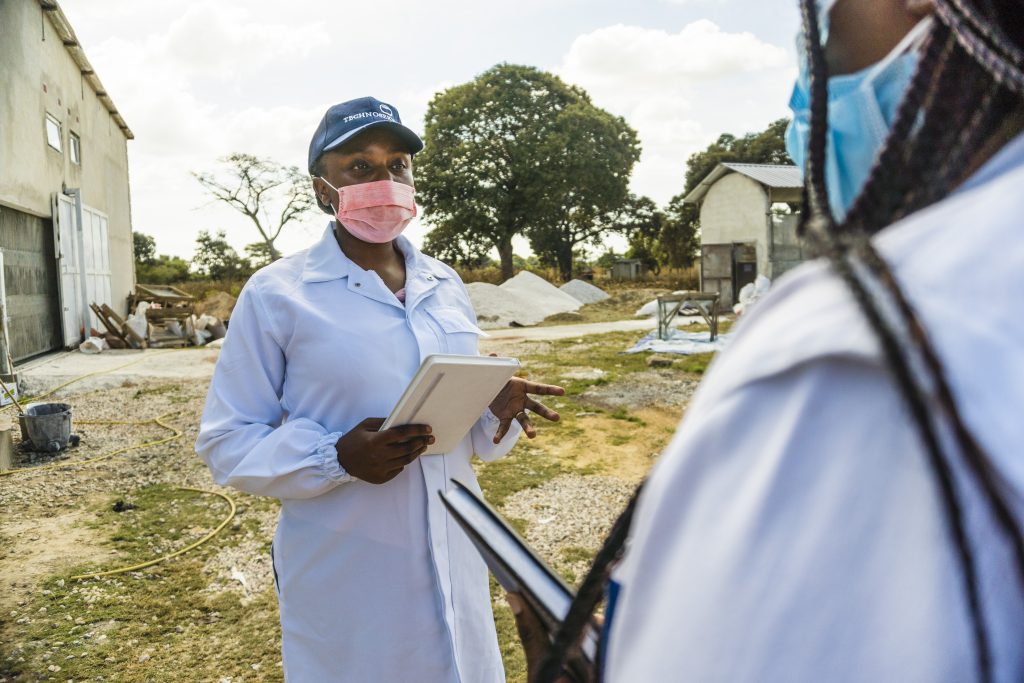
Omega Foods began with a mother looking for a nutritious and tasty porridge to feed her young child. Over nearly a decade, the household operation grew into a competitive food processing business producing a variety of healthful products. But the COVID-19 pandemic disrupted Omega’s operations and threatened its ability to meet retail demand. The reduction in sales also impeded Omega’s ability to purchase crops from smallholders, and it was on the verge of downsizing its workforce. With grant funding and support from CFAI, Omega was able to bounce back from the challenges and secure its operations for the future..
Helping a Dairy Business Saves Smallholder Incomes in Tanzania
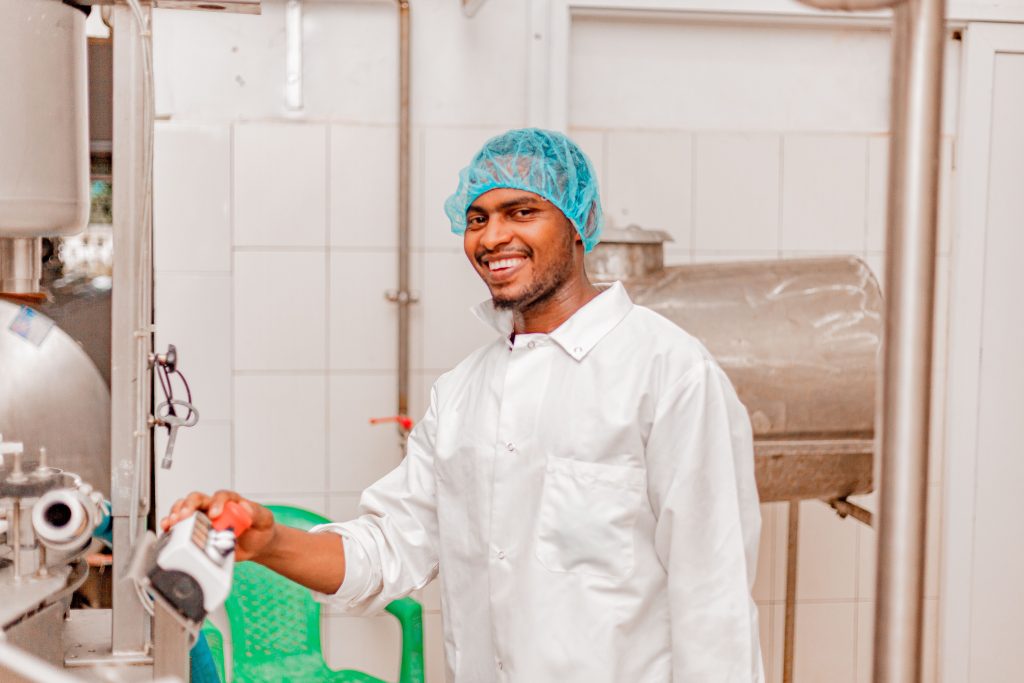
Tanzanian dairy producer Profate Investments was already trying to weather the impacts of the COVID-19 pandemic when it was struck by a second, even greater challenge: a crippling drought that decimated livestock and agricultural production in the country. But with funding and technical assistance, Profate was able to resume its operations and purchase 61,000 liters of milk from smallholder producers, paying all of them on time. It was also able to develop new marketing and packaging to better reach low-income consumers with its nutritious dairy offerings.
A Company Is Able to Hire More Women
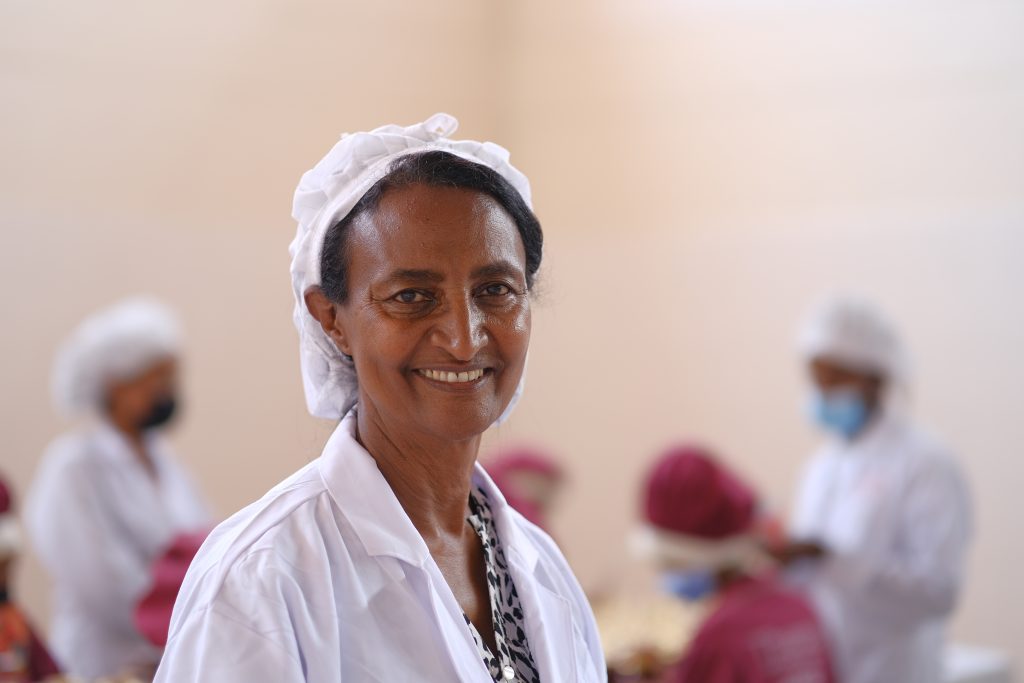
Over a decade of hard work, Theday Agro Industry grew from a home operation into one of Ethiopia’s leading jam manufacturers. But soaring supply costs, limited cash flow, and other challenges from the COVID-19 pandemic threatened that growth trajectory. Read how the firm was able to get back on track, eventually doubling its production capacity, increasing its sales, and hiring 13 new workers, all of whom are women.
By improving resilience for the smallholder farmers, food processors, and small business owners at each key level, TechnoServe is transforming food systems. Join us as we help those who feed the world to feed themselves.





